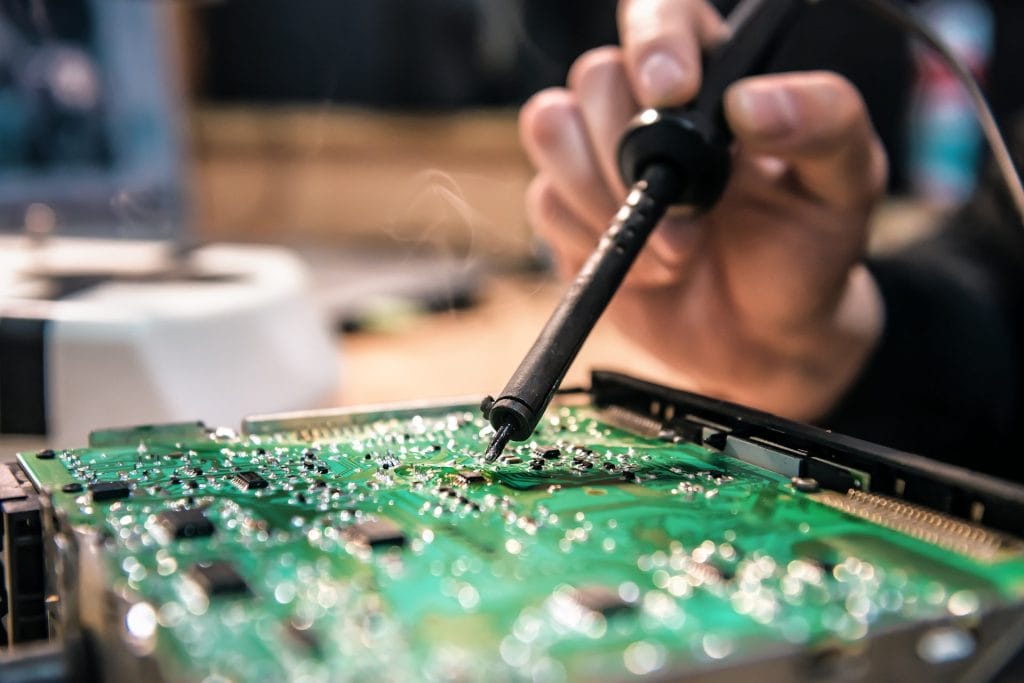
In the dynamic world of industrial automation, modern Printed Circuit Boards (PCBAs) in Industrial Controls are the cornerstone of efficiency and innovation. At the heart of these systems are Printed Circuit Boards (PCBAs) and box build assemblies, which play pivotal roles in transforming raw materials into high-performance, automated processes. This blog post delves into the integral roles of PCBAs and box build assemblies in modern industrial controls, highlighting their contributions to various industries and their importance in driving the future of automation.
The Role of Printed Circuit Boards (PCBAs) in Industrial Controls
Printed Circuit Boards (PCBs) in Industrial Controls are the backbone of electronic systems, providing a platform for mounting and interconnecting electronic components. In the context of industrial controls:
- Signal Integrity: PCBAs allow for the integration of numerous components in a small footprint, enabling the development of sophisticated and space-efficient control systems.
- Thermal Management: Effective thermal management is essential to prevent overheating and ensure the longevity of electronic components. PCBs are designed with materials and layouts that facilitate heat dissipation, maintaining optimal operating temperatures.
- Customization: PCBAs can be tailored to specific requirements, offering flexibility in design and functionality. This customization is vital for creating specialized control systems that meet the unique needs of different industrial applications.
The Importance of Box Build Assemblies
Box build assemblies, also known as systems integration or higher level assemblies (HLAs), encompass the assembly of the entire product, including PCBAs, wiring, enclosures, and other sub-assemblies. They are critical in bringing together all components into a cohesive and functional unit.
Benefits of Box Build Assemblies in Industrial Controls
- Comprehensive Solutions: Box build assemblies provide end-to-end solutions, integrating various components into a single, cohesive system. This holistic approach simplifies the manufacturing process and enhances the reliability of the final product.
- Streamlined Production: By consolidating multiple components and processes into a single assembly, box builds streamline production, reducing assembly time and minimizing potential errors. This efficiency is crucial for meeting tight production schedules and maintaining high-quality standards.
- Enhanced Durability: Enclosures and protective housings used in box build assemblies safeguard delicate electronic components from environmental factors such as dust, moisture, and mechanical stress. This durability is essential for industrial controls operating in harsh conditions.
- Ease of Maintenance: Box build assemblies are designed with accessibility in mind, facilitating easy maintenance and repair. Simplified access to internal components reduces downtime and maintenance costs, ensuring uninterrupted industrial operations.
Integration of PCBAs and Box Build Assemblies in Industrial Controls
The integration of PCBAs and box build assemblies is a symbiotic relationship that enhances the functionality and performance of modern industrial controls. This combination enables the creation of sophisticated systems that drive automation across various industries.
Key Applications
- Manufacturing: In manufacturing, PCBAs and box build assemblies are used in machinery control systems, robotics, and automated production lines. They ensure precise control, high efficiency, and consistent quality in manufacturing processes.
- Energy Management: Industrial controls equipped with PCBAs and box build assemblies are pivotal in energy management systems. They enable real-time monitoring, control, and optimization of energy consumption, contributing to energy efficiency and sustainability.
- Automotive: The automotive industry relies on advanced industrial controls for applications such as automated assembly lines, testing equipment, and vehicle control systems. PCBAs and box builds ensure reliability and performance in these critical applications.
- Aerospace: In aerospace, the robustness and precision of industrial controls are essential for flight control systems, navigation, and communication. PCBAs and box build assemblies provide the necessary reliability and functionality for these high-stakes applications.
Future Trends in Industrial Controls
The future of printed circuit boards (PCBs) in industrial controls, with a focus on PCBAs and box build assemblies, is set to be shaped by several emerging trends:
- Advanced Materials: Innovations in materials science will lead to the development of PCBAs with enhanced performance characteristics, such as improved thermal management and signal integrity.
- IoT Integration: The Internet of Things (IoT) will continue to revolutionize industrial controls, enabling real-time data exchange and connectivity. PCBAs and box builds will integrate IoT technologies to create smarter and more responsive systems.
- Artificial Intelligence: AI will play a crucial role in predictive maintenance, process optimization, and autonomous decision-making. Industrial controls will incorporate AI algorithms, leveraging the data collected by PCBAs and box build assemblies for intelligent automation.
- Sustainability: The push towards sustainability will drive the development of energy-efficient PCBAs and eco-friendly manufacturing practices. Industrial controls will be designed to minimize environmental impact while maximizing performance.
Conclusion
Printed Circuit Boards and box build assemblies are the unsung heroes of modern industrial controls, providing the foundation for automation and efficiency in various industries. Their integration is key to the development of sophisticated, reliable, and high-performance control systems. As technology continues to advance, the roles of PCBAs and box builds will become even more critical, driving innovation and shaping the future of industrial automation. Embracing these advancements will not only enhance industrial processes but also pave the way for a smarter, more sustainable future.